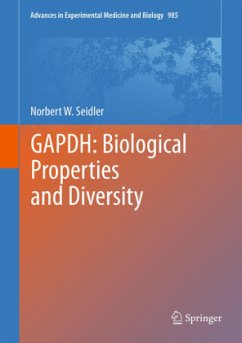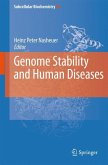The book represents a comprehensive review and synthesis of the biomedical literature that spans over a half-century on a single protein called glyceraldehyde 3-phosphate dehydrogenase (or, GAPDH). Due to the protein's involvement in a vast array of cellular activities, GAPDH is of interest to the cell biologist, immunologist, virologist, biochemist etc. The protein has a significant role in fertility, cancer and neurodegeneration, suggesting that this book can be a vital resource for drug development. GAPDH function may provide insight into anesthesia. Furthermore, GAPDH is highly conserved meaning that the protein found in microorganisms, such as pathogens, remained relatively unchanged in evolution. Pathogens use GAPDH as a virulence factor, offering a unique challenge in developing anti-microbial agents that target this protein. To the evolutionary biologist, a book on the multi-functionality of GAPDH provides a focal point for a cogent discussion on the very origin of life.
From the book reviews:
"The biochemical, physiological, and metabolic roles of GAPDH is discussed starting with the cell membrane and ionic mechanisms of glycolysis, energetics, and the TCA cycle. This is a book which should explore in greater detail the effects on blood brain barrier and CNS metabolism. I do however, highly recommend this book to physiologists and biochemists. Graduate students and postdocs will probably find this a very good discussion of GAPDH." (Joseph J. Grenier, Amazon.com, August, 2014)
"The biochemical, physiological, and metabolic roles of GAPDH is discussed starting with the cell membrane and ionic mechanisms of glycolysis, energetics, and the TCA cycle. This is a book which should explore in greater detail the effects on blood brain barrier and CNS metabolism. I do however, highly recommend this book to physiologists and biochemists. Graduate students and postdocs will probably find this a very good discussion of GAPDH." (Joseph J. Grenier, Amazon.com, August, 2014)









